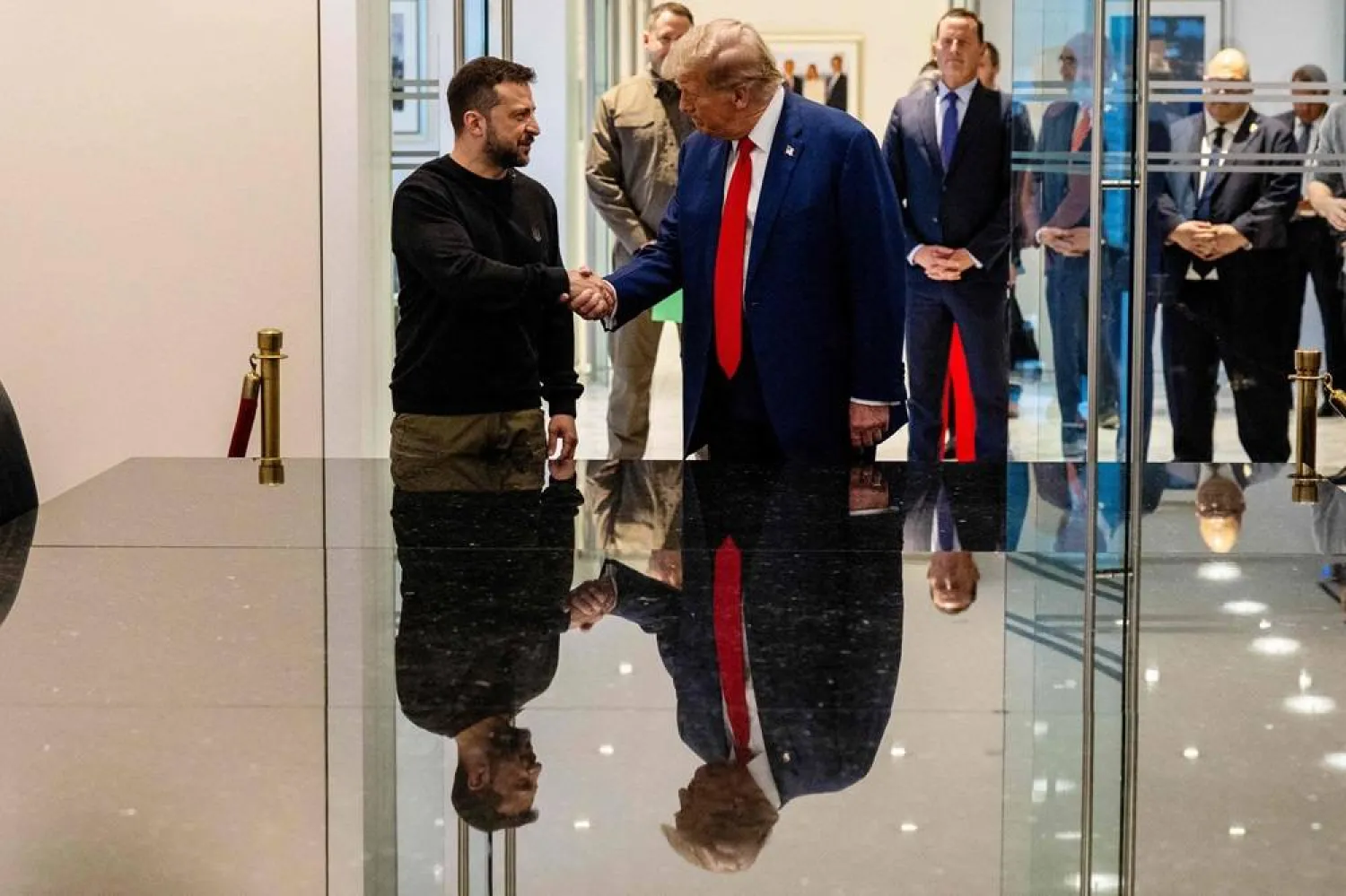Ukrainian President Volodymyr Zelenskyy met face-to-face with Donald Trump on Friday with public tensions rising between the two over Ukraine's defense against Russia's invasion and in the midst of the US presidential election.
“We both want to see this end, and we both want to see a fair deal made,” Trump told Fox News while standing alongside Zelenskyy after meeting for 40 minutes. “The president wants it to end, and he wants it to end as quickly as possible. He wants a fair transaction to take place.”
Zelenskyy said the war shouldn't have started and added that there needs to be pressure on Russian President Vladimir Putin and peace for the families of those killed.
“We need to do everything to pressure him to stop this war. He is in our territory. That's most important to understand. He is in our territory.”
The meeting came at a critical time in the Russia-Ukraine war as Election Day nears in the US Trump and Vice President Kamala Harris, his Democratic opponent, have taken sharply different approaches to Ukraine. Zelenskyy has been eager to keep good relations with the United States, his country's largest provider of arms and money for the war. But the future of that support would be in doubt if Trump were to win the election.
Trump, who has touted his good relationship with Putin and called the Russian leader “pretty smart” for invading Ukraine, has for months criticized US support for Ukraine and derided Zelenskyy as a “salesman” for persuading Washington to provide weapons and funding to his military as it tries to fend off Moscow.
On Friday, Trump brought up his first impeachment, which Democrats in Congress pursued after he asked Zelenskyy for a “favor” — that he investigate Joe Biden, now the president, and Biden’s son Hunter, who served on the board of a Ukrainian gas company.
At the time Trump asked for the “favor,” he was withholding $400 million in military aid to Ukraine as it fought Russian-backed separatists on its eastern boundary. He was later acquitted of the impeachment charges by a Republican-led Senate.
“He could have grandstanded and played cute,” Trump said. “And he didn't do that. He said, ‘President Trump did absolutely nothing wrong.’ He said it loud and clear.”
Zelenskyy told reporters in October 2019, as Congress was launching its impeachment inquiry, that there was “no blackmail” from Trump. He also told reporters, “I don’t want to interfere in any way in the elections,” trying to publicly and privately distance himself then from US domestic politics.
But The Associated Press reported afterward that, despite Zelenskyy’s denials, US officials were aware he was feeling pressure from the Trump administration to investigate Biden even before his phone call with Trump regarding the “favor.”
Friday's meeting almost wasn't scheduled despite Zelenskyy’s office saying something had been planned during the Ukrainian leader’s visit to the UN General Assembly, during which he is making his endgame pitch to allies.
In an interview with The New Yorker that was published earlier this week, Zelenskyy implied Trump does not understand and oversimplifies the conflict. The Ukrainian leader said Trump's running mate, Sen. JD Vance of Ohio, was “too radical” and has essentially advocated for Ukraine to “make a sacrifice” by “giving up its territories.”
Trump ripped Zelenskyy and Ukraine on two separate occasions this week. Speaking Wednesday in North Carolina, he referred to Ukraine as “demolished” and its people as “dead.”
“Any deal — the worst deal — would’ve been better than what we have now,” Trump said. “If they made a bad deal, it would’ve been much better. They would’ve given up a little bit and everybody would be living and every building would be built and every tower would be aging for another 2,000 years.”
Meanwhile, Harris on Thursday stood alongside Zelenskyy and said Trump's push for Ukraine to quickly cut a deal to end the war was “not proposals for peace,” but “proposals for surrender.” Trump on Thursday said he was not advocating for a surrender.
As he was preparing to sit down for the Friday meeting, Trump was asked by a reporter if Ukraine could win the war and he replied, “Sure. They could.”
He said of Zelenskyy: "We have a very good relationship. And I also have a very good relationship, as you know, with President Putin. And if we win, I think we’re going to get it resolved very quickly.”
Zelenskyy cut into Trump's remarks with, “I hope we have more good relations between us." Before moving on to another question, Trump interjected to say “but, you know, it takes two to tango.”









